France mourns ex-president, dead at 94
Valéry Giscard d’Estaing, France’s president from 1974 to 1981, has died at the age of 94.
He died of complications from coronavirus, surrounded by his family at his estate in central France.
A centre-right, pro-Europe politician, Giscard d’Estaing also liberalised laws on divorce, abortion and contraception during his seven years in power.
President Emmanuel Macron said his presidency had transformed France and his direction still guided its way.
“A servant of the state, a politician of progress and freedom, his death has plunged the French nation into mourning,” he said in a statement.
The late president’s family said his funeral would take place amid “strict intimacy”.
Long career in politics
In later life, Giscard d’Estaing liked to portray himself as the grand old man of French politics.
As one of France’s youngest presidents – he was 48 when he came to power, he had a longer career in politics after he left high office than he had enjoyed on his way to the Élysée Palace.
He was seen by many as arrogant and aloof; his presidential popularity was short-lived and he was eventually squeezed out of office by a strengthening of opposition from both the left and the right.
He was also caught up in a scandal surrounding his support for a corrupt African dictator.
Valéry Marie René Georges Giscard d’Estaing was born on 2 February 1926 in Koblenz, in what was then French-occupied Germany.
His father was a civil servant who worked for the French occupying forces, while his mother was descended from King Louis XV of France via one of his mistresses.
Giscard d’Estaing’s education was disrupted by World War Two. He was just a teenager when he joined a French resistance group in occupied Paris before enlisting in a tank battalion in 1944, earning the Croix de Guerre in the last months of the war.
He worked for a while as a teacher in Montreal before graduating from the Ecole Nationale d’Administration and joining the tax and revenue service.
In 1955 he spent some time on the staff of prime minister Edgar Faure before winning the seat of Puy-de Dome in the National Assembly, the area from which his mother’s family came.
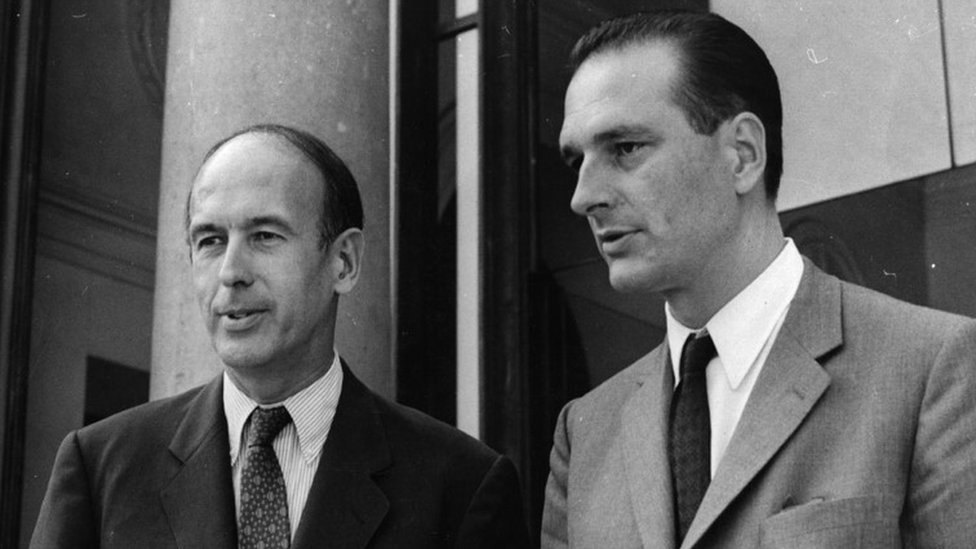
He became secretary of state for finances in 1959, a post he held for almost four years until his party broke with the ruling Gaullists with whom they were in a coalition. However, Giscard d’Estaing refused to leave the government and founded the Independent Republicans, which allied itself to the majority Gaullists.
He was sacked from the cabinet in 1966 but, as chairman of the National Assembly committee that scrutinised the country’s finances, he remained a powerful voice, latterly increasingly critical of the De Gaulle government.
Thrown out of his chairmanship by the Gaullists in 1968, he gained his revenge by supporting Georges Pompidou in the 1969 presidential elections, whereupon he was reappointed to the finance ministry.
When Pompidou died suddenly in 1974, Giscard d’Estaing announced he would run for the Élysée Palace, presenting himself as a modern and moderate alternative to the austere conservatism of Gaullism.
Death sentences
He successfully gained the support of the centre while, at the same time, taking advantage of divisions among the Gaullists, some of whom – notably Jacques Chirac – announced their support for Giscard d’Estaing as the only hope of defeating the left.
Giscard d’Estaing narrowly defeated the socialist François Mitterrand in the second round of voting with just 50.7% of the poll, becoming the third youngest president in French history.
After years of Gaullist stagnation, he made his intentions plain: “You want a deep political, a deep economic and a deep social change. You will not be disappointed,” he said.
At home, he made several reforms early on in his term in office. The voting age was lowered from 21 to 18, while divorce and abortion laws were relaxed, in spite of fierce opposition from the Catholic Church.
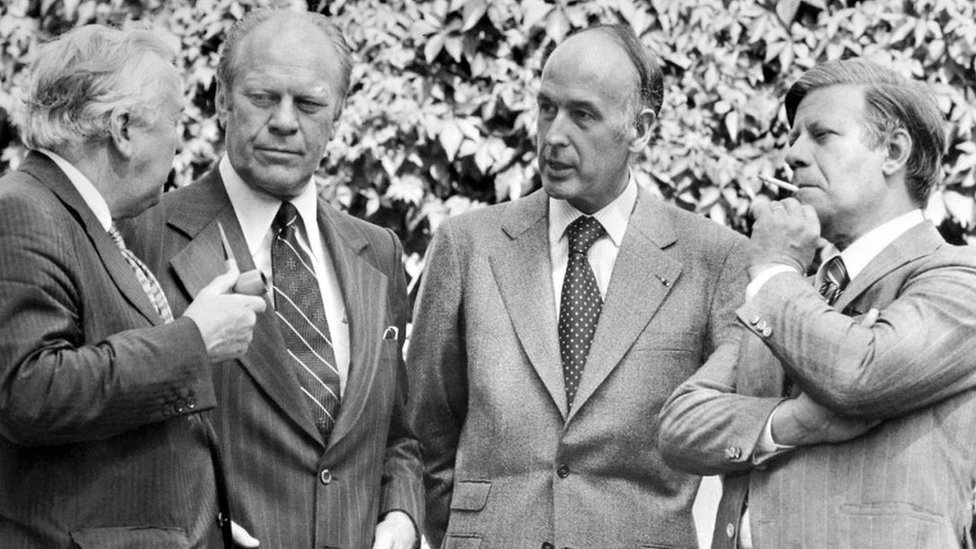
He also saw through laws on equal pay and opportunities for women, reduced the retirement age to 60 and allowed Paris to elect its own mayor.
Although he voiced his opposition to the death penalty, he refused to commute three of the death sentences passed during his term, and the last use of the guillotine in France took place in 1977.
A fan of technology, Giscard d’Estaing was a strong advocate of the French high-speed train network, the TGV, construction of which began in earnest in 1976.
He was also an enthusiastic supporter of the drive to increase France’s dependence on nuclear power, following the oil crisis of 1973.
Austerity programme
Giscard d’Estaing was committed to the European ideal and developed a close relationship with Germany’s Chancellor Helmut Schmidt. Together they turned their dream of a more integrated Europe into reality.
His main contribution was the formation of the European Council in 1974 – bringing together the heads of states of all member countries – which, in 1979, pushed forward a European monetary system.
However, his domestic reforms worried his more conservative political allies, with Jacques Chirac resigning as prime minister in 1976. His successor, Raymond Barre, introduced a programme of austerity and unemployment began to rise.
The right won a majority in the 1978 coalition elections and Giscard d’Estaing responded by founding the Union for French Democracy (UDF).
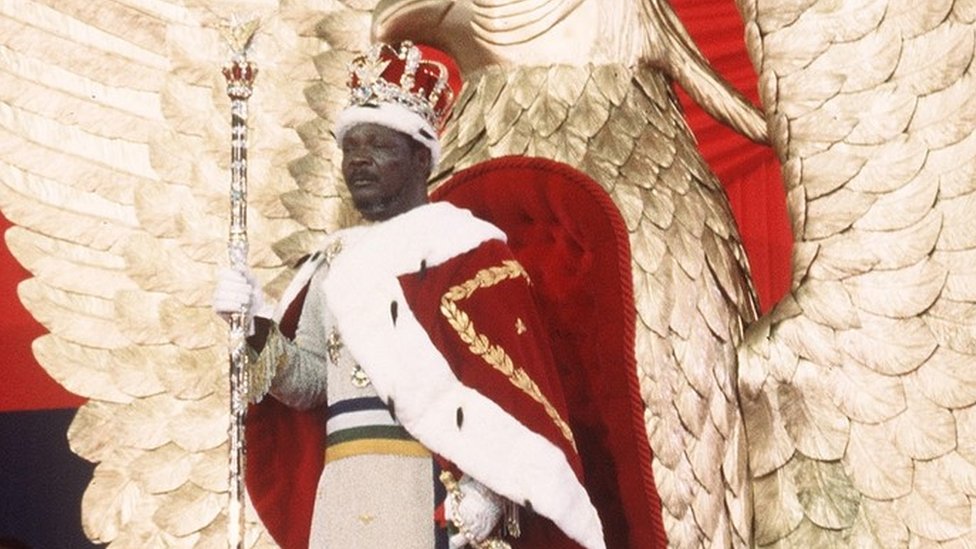
Giscard d’Estaing’s popularity began to wane. His standing was not enhanced after he was accused of accepting a gift of diamonds from the self-styled Emperor of the Central African Republic, Jean-Bedel Bokassa.
Bokassa’s brutal dictatorial regime had received a great deal of support from the French government, with Giscard D’Estaing declaring in 1975 that he was a “friend and family member” of Bokassa.
France played a major part in Bokassa’s lavish coronation ceremony in 1977, which cost more than the annual gross domestic product of the impoverished country.
In 1979, the French satirical magazine, Le Canard enchaîné, alleged that Giscard d’Estaing had received the diamonds in 1973, when he was finance minister.
Political obscurity
His initial explanation that he had sold them and given the proceeds to a number of charities was undermined when one of the alleged recipients, the Red Cross, denied having received any funds.
Giscard d’Estaing lost the 1981 presidential election to Francois Mitterrand. He defeated Jacques Chirac in the first round of voting, but Chirac’s failure to call on his supporters to support Giscard d’Estaing in the second round widened the gulf between the former allies.
Subsequently, he based himself in his political heartland – the Auvergne region of central France – delivering regular pronouncements to newspapers and on television about the state of the nation.
His national standing sank so low that he became known as Monsieur Ex in Parisian political circles.
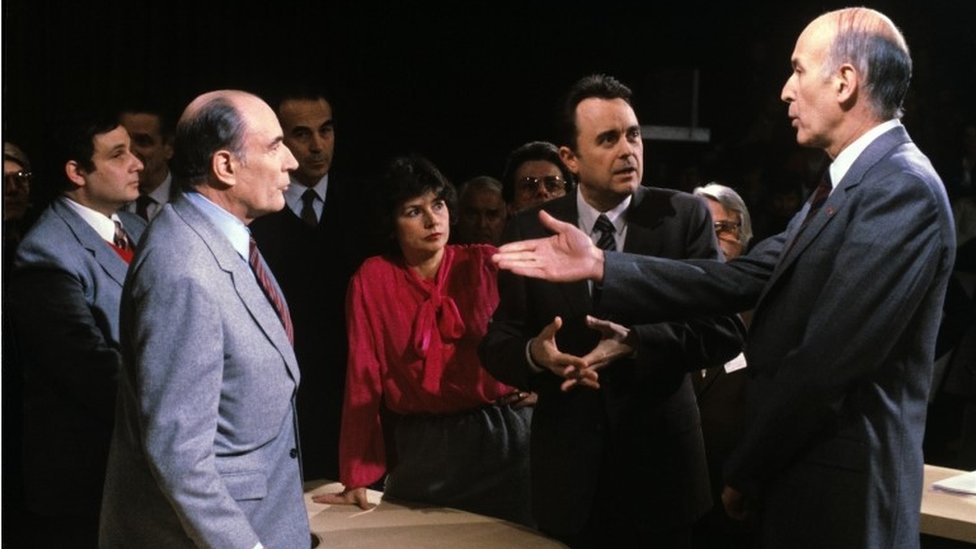
His hopes of becoming prime minister under Mitterrand in 1986 were dashed and he refused to support either right-wing candidate in the 1988 presidential elections.
Between 1989 and 1993, he served as a member of the European Parliament and seemed destined to end his days in political obscurity.
But, in 2002, he returned to the limelight when he was chosen to head up the convention tasked with drawing up a constitution for the European Union
His selection for the job was the result of intensive lobbying by French President Jacques Chirac, who is said to have insisted on it at the EU’s summit in the Belgian town of Laeken in December 2001.
Profound embarrassment
Many criticised the choice of a man in his late 70s for a job designed to bring the EU closer to the people, and especially the young.
There was also criticism over Giscard d’Estaing’s reported demands for a salary in excess of €20,000 per month, plus expenses. He is said to have asked for a luxury suite of rooms in a Brussels hotel for a year and for a handpicked private staff.
However, he denied that he was being greedy. “It is simply that things should be comfortable,” he told Le Monde newspaper.
In 2004, European heads of state signed a European Constitution that was based primarily on the work carried out by Giscard d’Estaing’s convention.
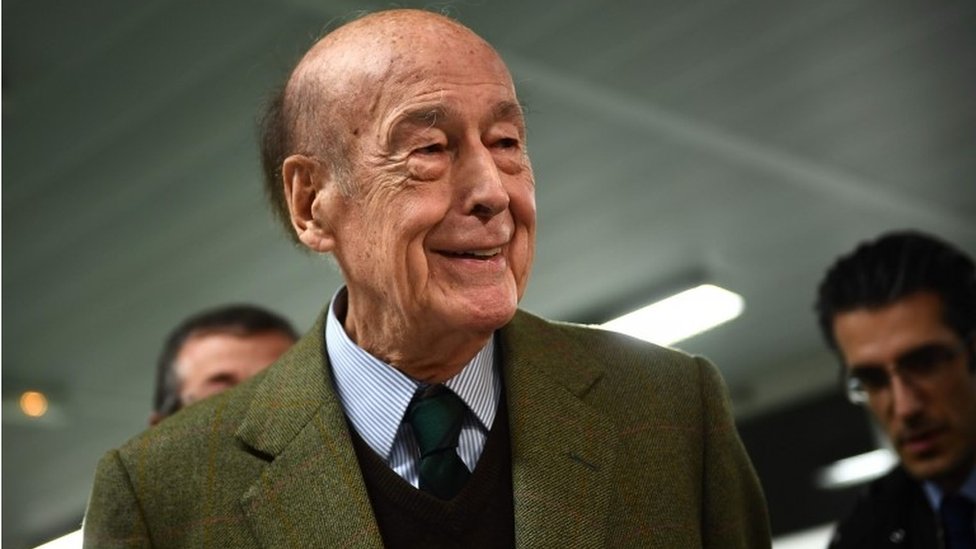
A year later, and to Giscard d’Estaing’s profound embarrassment, the constitution was roundly rejected by the French people. He later complained that “the rejection of the Constitutional treaty by voters in France was a mistake that should be corrected”.
In 2005, he and his brother purchased the castle of Estaing in the French district of Aveyron, which had previously been owned by Admiral d’Estaing. Giscard d’Estaing’s family had no direct connection with the deceased naval officer and there was much criticism that he was attempting to buy his way into the nobility.
In 2009, he published a novel about a relationship between a fictional French president and the fictional Princess of Cardiff. It led to speculation that it was based on a relationship between Giscard d’Estaing and Diana, Princess of Wales, although he eventually poured cold water on those suggestions.
Earlier this year, he was accused of groping a German reporter during a 2018 interview – charges he denied.
Valery Giscard d’Estaing was something of an enigma. Intellectually gifted, he lacked the common touch and never became popular with the French people.
His single-minded approach to greater European integration was not to everyone’s taste and his aloof nature meant he often fell out with his allies.
Bitterly disappointed that Britain decided to leave the European Union in 2016, he described it as a “backward step”. But the enthusiastic architect of European unity was, by now, in his nineties. He felt, he said, inclined to take the long view.
“We functioned without Britain during the first years of the European Union,” he said, with a Gallic shrug. “So we will rediscover a situation that we have already known.”



